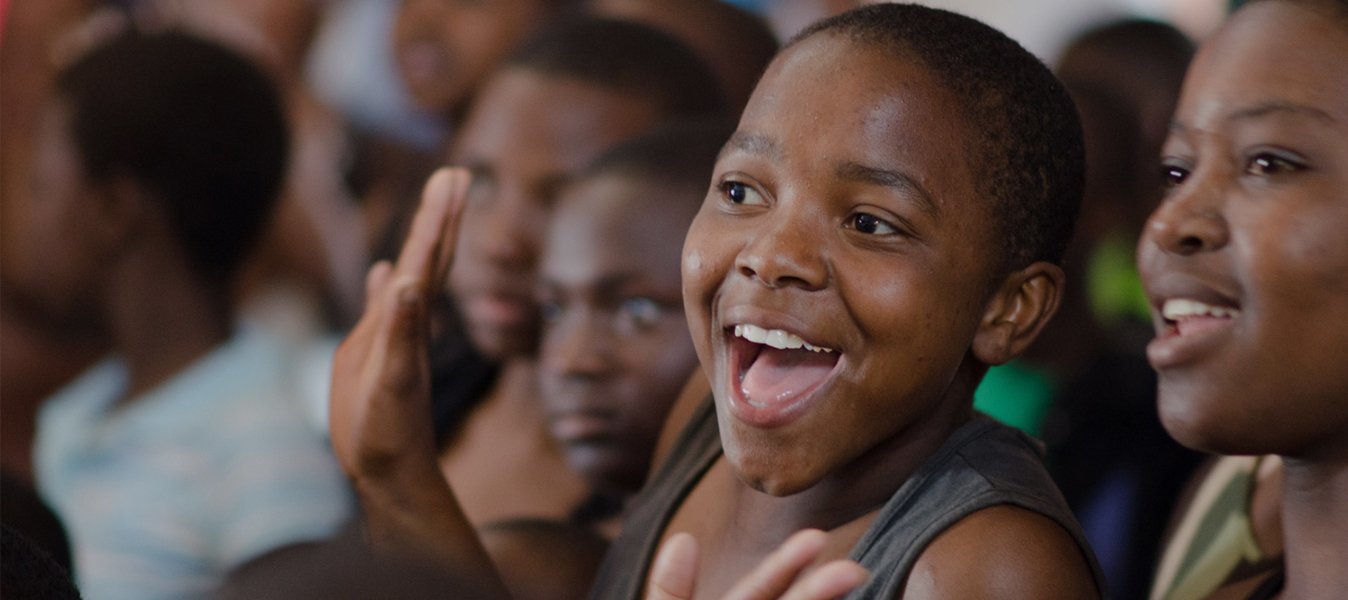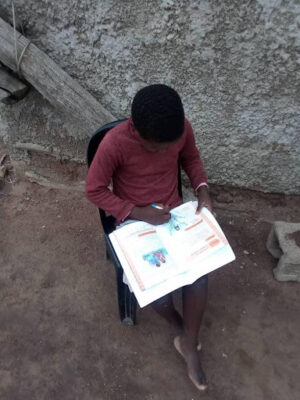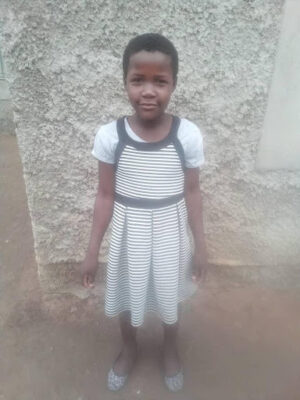
Supporting HIV Status Disclosure and Linkages to Comprehensive Care

Thirteen-year-old Lindelwa has been HIV-positive for her entire life–but for the first 11 years, she was not aware of that fact. She thought that the regular medicine she was supposed to take was for asthma–not knowing it was antiretroviral treatment (ART) to prevent the virus from causing full-blown AIDS (acquired immune deficiency syndrome.)
This young girl contracted HIV from her mother at birth, at a time when prevention of mother-to-child transmission interventions were still somewhat new and not well understood in Eswatini, especially in rural communities. Lindelwa’s mother passed away when she was five and since then, she has lived with her maternal grandmother or “gogo” in the little village of Sulutane, about 84 kms. from the capital, Mbabane.
Lindelwa’s gogo had registered a total of nine child “beneficiaries” under the USAID-funded Nsika Ya Kusasa (Ready, Resourceful, Risk-Aware) project, being led by Pact and implemented by Bantwana Eswatini, from 2018 – 2023. As one of the main implementing subgrantees, Bantwana Eswatini was responsible for achieving the project’s 95-95-95 targets for sustainable epidemic control by preventing new HIV infections and reducing the vulnerability of two key groups–orphans and vulnerable children (OVC) and adolescent girls and young women (AGYW). During the five-year project, BE built the socio-economic resilience of families and caregivers affected by HIV while increasing uptake of high-impact services to prevent HIV and gender-based violence and support sexual and reproductive health, including family planning.
During a visit to Lindelwa and her grandmother, a Bantwana Eswatini-trained community cadre – home visitor learned that the grandmother had not disclosed Lindelwa’s status to her. Not knowing the real reason for having to take medicine daily, Lindelwa would often skip doses, and her treatment adherence level was only about 75%. The  home visitor stressed the importance of disclosing Lindelwa’s status, especially as she was approaching adolescence, which brings its own challenges and exploration. As the home visitor explained, many adolescents default on their ART regimens because of socioemotional issues arising from late disclosure, which can spark anger, confusion, anxiety and possibly even depression, amid all the other changes teenagers face.
home visitor stressed the importance of disclosing Lindelwa’s status, especially as she was approaching adolescence, which brings its own challenges and exploration. As the home visitor explained, many adolescents default on their ART regimens because of socioemotional issues arising from late disclosure, which can spark anger, confusion, anxiety and possibly even depression, amid all the other changes teenagers face.
Given cultural norms and prevalent stigma, the grandmother was initially reluctant but said she would give it careful consideration. The home visitor made sure to visit the household at least twice a month, to encourage gogo. Finally, in August 2022–with assistance from the home visitor as well as experts at the local health facility–gogo told Lindelwa the truth about her condition. As can be expected, the young girl had a lot of questions and burst into tears upon learning that she was born with HIV. Bantwana Eswatini’s comprehensive care approach ensured that both Lindelwa and her grandmother participated in multiple counseling sessions, through which a Bantwana Case Worker assisted the child to come to terms with the situation–and understand that she could live positively with HIV.
Soon, Lindelwa told the Bantwana team she had accepted her status and she began rigorously adhering to ART because now she understood why she needed to take the medication every day. The nurses at the health facility noted that her viral load went down and were thrilled when her adherence hit 100% for three consecutive months.
“Thank you for always visiting me and helping Gogo tell me the real reason why I need to be on medication,” Lindelwa often said to the home visitor.
By October 2022, Lindelwa felt ready to start interacting with other children living with HIV, and enrolled in the local health facility treatment teen club. These clubs consist of support groups for children aged 10-19 who are living with HIV, and are designed to help HIV-positive adolescents support each other. The clubs are facilitated by Healthcare workers and Bnatwana project Linkages Assistants to address the psychological and clinical needs of adolescents so that they feel confident, stay on treatment, and prevent transmission of the virus to their own future partners or children.
Seeing older teens living active lives has helped Lindelwa appreciate what the home visitor and her grandmother had told her on the day she learned about her status: HIV is not the end of life; and one can live a healthy and productive life even with an HIV-positive status.
